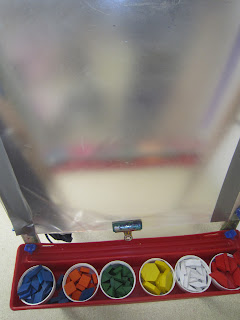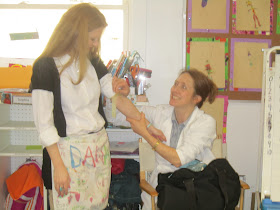This time of year often causes a lot of anxiety for
preschool children. They are attending
Kindergarten orientations and hearing a lot about “next year”. As adults we know this elusive “next year” is
actually about four months away, but to young children, it seems eminent. They start to worry about leaving the comfort
and predictability of their preschool setting.
They are hearing,
“This is your new teacher”, or “You are going to the BIG school.” “You’ll make so many new friends.” Although these statements are meant to be
encouraging, they can be frightening.
Your child is happy with his teacher, loves his classroom and his
friends. To hear that he now has to go
somewhere bigger, without all of his close friends and the adults he has come
to count on can trigger feelings of angst and may even cause some separation
anxiety to resurface.
I encourage you to tone down all the talk to going to
Kindergarten as much as possible. Sure
you will talk about it when you visit, and you will definitely want to start
talking about it as it gets closer. For
now, however, focus on this: the now.
Enjoy the last few weeks of preschool with your child. Make the focus on what he is doing now.
If you want to do some ground work for preparing for the
change you can talk about what your child remembers about the start of
preschool and how much he has changed.
How he may have been nervous at the beginning but came to be reassured
and comfortable. How he is now the
expert at all the areas of the classroom and has become so independent. How he has made new friends.
Then when the Kindergarten start date comes closer, you
can relate these preschool experiences to the beginning of kindergarten and how
he will feel just as comfortable once he gives it some time.
You’ll have to help remind grandparents and other
relatives about this as they tend to be the biggest proponents of the “soon
you’ll be going to kindergarten mantra”.
Just explain to your friends and family members that you are trying to
be more low key about the change coming up and encourage them to ask instead,
“what did you play today?”





























